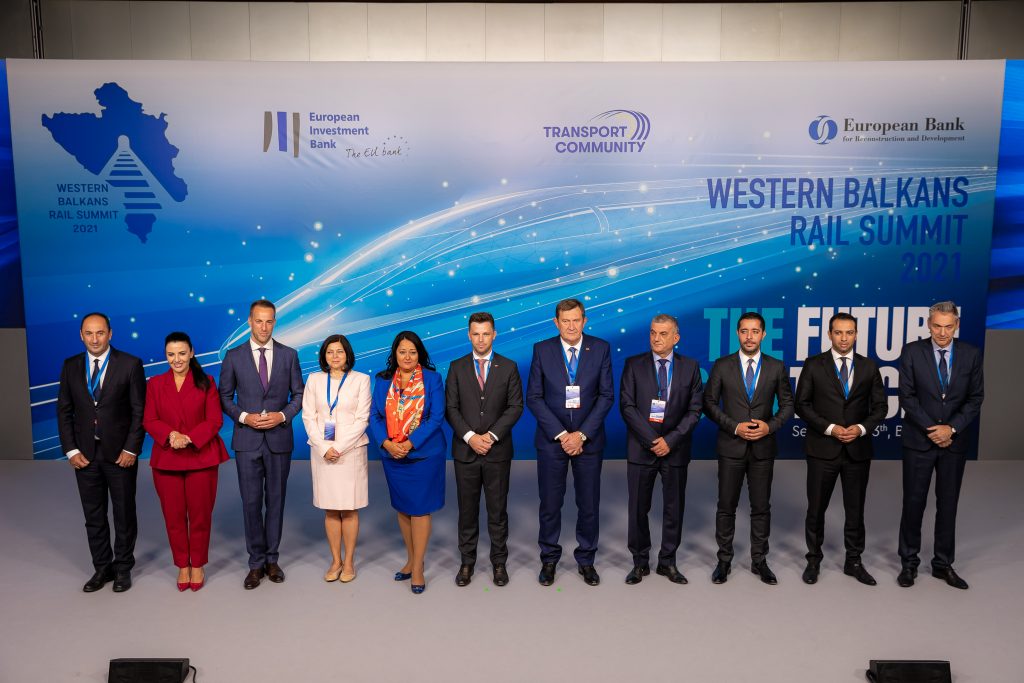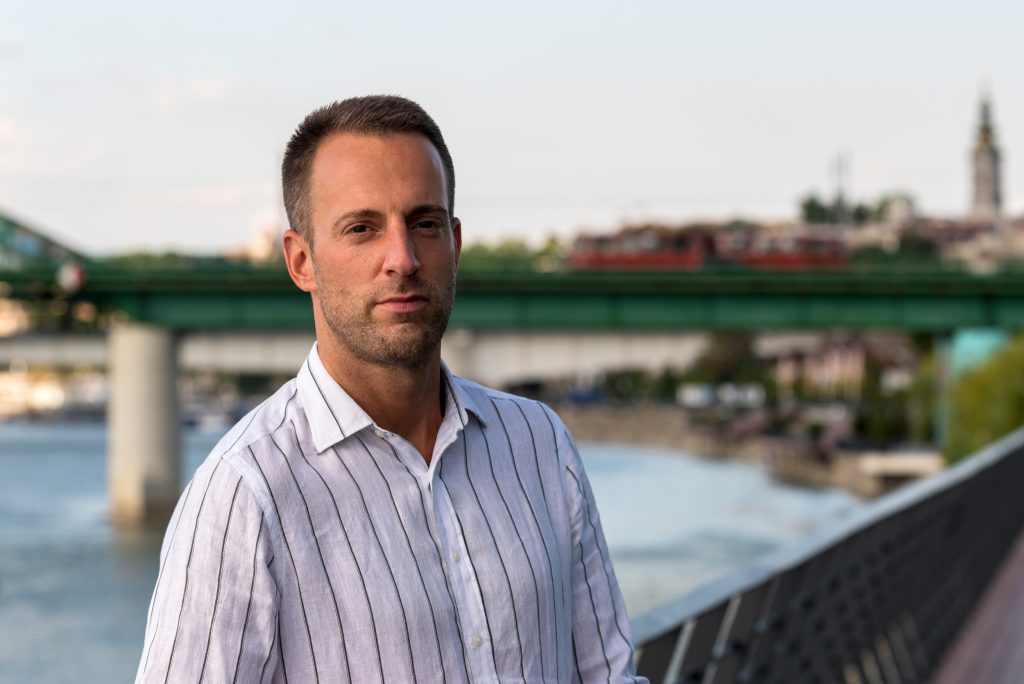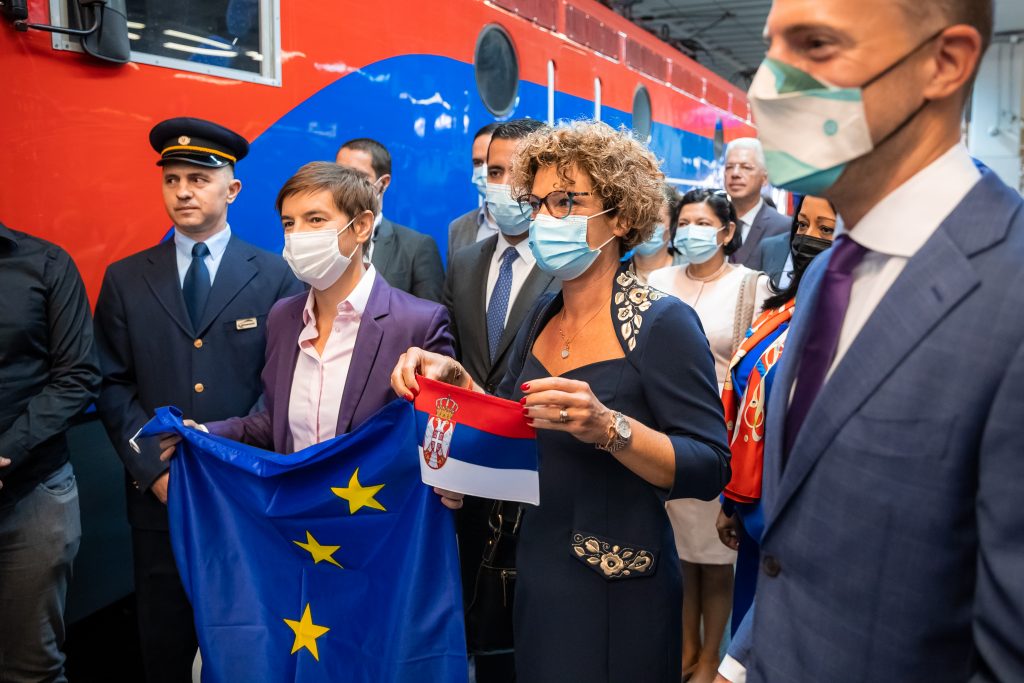The time has come to invest in rail and to develop a strong and competitive rail transport industry, with open and competitive rail transport market and to improve safety of rail networks
Approximately a year ago, Diplomacy and Commerce was among the first publications in Serbia to publish a story about the Transport Community Permanent Secretariat, the first international organisation with headquarters in Belgrade. During the one year since Matej Zakonjsek took over position of Director of the organisation, Transport Community has become a recognisable name in the world of transport and diplomacy.

On 13 September, Transport Community, together with the European Investment Bank and the European Bank for Reconstruction and Development gathered the entire region for the “Western Balkans Rail Summit” in Belgrade.
For the first time, under the auspices of Ministry of Construction, Transport and Infrastructure of Serbia, the entire rail world of the Western Balkans got together with a united message: the time has come to invest in rail, and to develop a strong and competitive rail transport industry, with open and competitive rail transport market and to improve safety of rail networks.
We talked to Director Zakonjsek about the work challenges caused by the Covid-19 pandemic and plans for the future.

What has been achieved since you took over as Director of Transport Community Permanent Secretariat?
The focus of the Transport Community Secretariat’s activities was to agree on a common regional approach that will assist the Western Balkans partners in adoption and implementation of all EU legislation when it comes to transport. We will step into the year 2022 with a set of strategic documents, that have been endorsed by all regional partners and that will guide our work in the years to come. All regional partners, including Serbia, have been dedicated to making progress on all key areas of our work: safer roads fit for future age, modern and reliable rail, improvement of border crossing procedures and infrastructure, and waterborne/maritime transport.
The most concrete action that has already impacted lives of our citizens, were Green Lanes in Western Balkans. They were established at the beginning of the COVID-19 outbreak to prevent shortages of essential goods and medical equipment. Their launch was one of the most successful examples of regional cooperation, managing to preserve trade flows, not only for economic benefits, but also for effective fight against the pandemic. We are now focused on extension of Green Lanes to the borders between the EU and the Western Balkans.
We are now focused on extension of Green Lanes to the borders between the EU and the Western Balkans
What are your plans for the future?
Until the end of the year our plan is to launch a road safety campaign with the aim to raise awareness about safety of level crossings in Serbia, where a lot of accidents happen due to poor security at sections where roads cross the railways. Our plan is to educate both current and future drivers about this important issue.
In the 2022 we want to put roads in the region at the forefront, with specific focus to the roads of the future: green, digital, and safe. We would like to see progress on various issues such as electronic tolling, deployment of e-charging stations, ITS strategy, and improving resilience of the road network in the region. At the same time, we need to make roads in the region safer, by improving quality of data, and targeted interventions on the network. Our recently launched Western Balkans Road Safety Observatory is focused on data collection and cooperation between different stakeholders involved in road safety.
The Strategy will assist Serbia and other regional partners to develop and strengthen their national strategies – with the final goal to make transport greener, sustainable, and healthier
How did you cope with the challenges of the pandemic and what has been your main contribution?
Operations of the Transport Community Permanent Secretariat in the last two years were heavily impacted by the COVID-19 pandemic, which has changed not only our working habits but also our political landscape, placing more attention on sustainability in its broader sense – environmental, social, and financial.
When it comes to sustainability, our organisation’s contribution has been the Strategy for Sustainable and Smart Mobility for the Western Balkans, which was endorsed by all six of our regional partners. The region suffers from high levels of greenhouse emissions caused by energy and transport sectors. Transport represents around 16% of these emissions. Sustainable and Smart Mobility Strategy for Western Balkans will pave the way to cleaner transport and be one of the key drivers of transport policy in the region. The Strategy will assist Serbia and other regional partners to develop and strengthen their national strategies – with the final goal to make transport greener, sustainable, and healthier for the citizens of the region.

The aim of summit
Building a modern, digitalised rail network, with direct express train connections between major cities will help establish better connectivity and provide safer and environmentally sustainable mode of transport for people and businesses in the Western Balkans. The summit was organised to coincide with the arrival of Connecting Europe Express train. As part of the European Year of Rail, the train crossed 26 countries of the continent and arrived in Belgrade on 12 September. Prime Minister Ana Brnabić delivered opening remarks at the Central Railway Station in Belgrade and demonstrated highest political support to “put the rail back on track” in the Western Balkans.